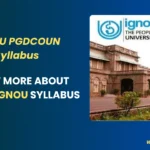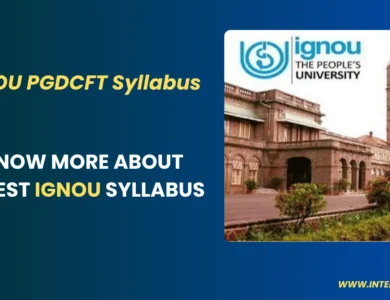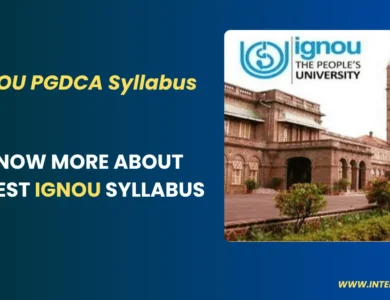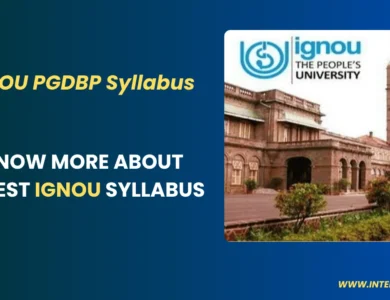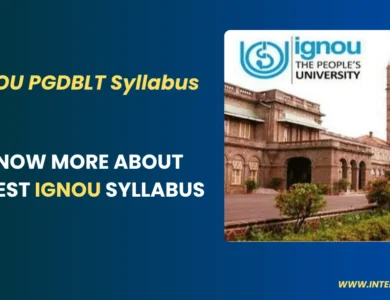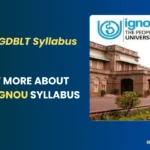IGNOU PGDFCS Syllabus 2025
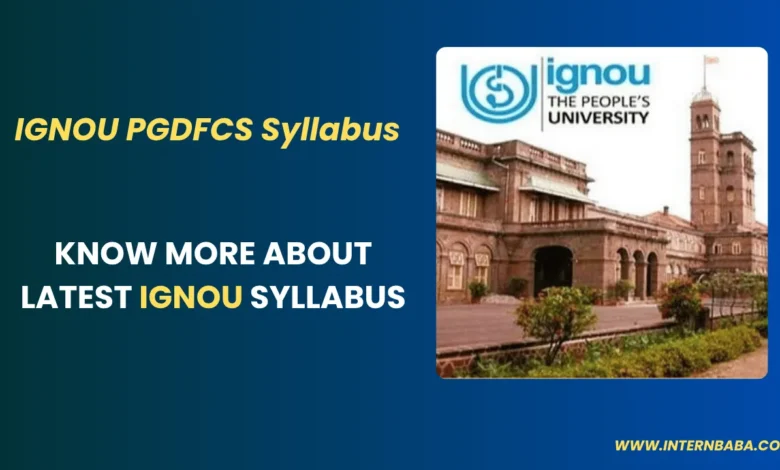
If you’re planning to pursue a Post Graduate Diploma in Folklore and Culture Studies (PGDFCS) from IGNOU, understanding the latest syllabus is crucial. This guide provides a detailed breakdown of the PGDFCS syllabus 2025 to help you stay organized and focused throughout your academic journey. Whether you’re a fresher stepping into distance learning or a professional looking to expand your knowledge in culture studies, knowing what to expect from your curriculum will help you plan effectively. IGNOU follows a credit-based academic structure to bring transparency and flexibility to learning, making it easier for students to manage their studies alongside personal or professional commitments.
Overview of IGNOU PGDFCS Program
The IGNOU PGDFCS program offers comprehensive insights into folklore, culture, tribal identities, and societal transformations. It is structured as an annual program with a total of 30 credits distributed among five compulsory courses, including a project component.
| Particulars | Details |
|---|---|
| Program Name | Post Graduate Diploma in Folklore and Culture Studies |
| Program Code | PGDFCS |
| Mode of Study | Distance Learning (Open and Flexible Mode) |
| Duration | Minimum 1 Year; Maximum 3 Years |
| Exam System | Annual |
| Total Credits | 30 |
| Offered By | IGNOU – Indira Gandhi National Open University |
IGNOU PGDFCS Course Structure 2025
Students must complete five core courses, each carrying 6 credits. Unlike other programs, PGDFCS does not offer electives. This ensures a streamlined and focused curriculum for all learners.
| Course Code | Course Title | Credits |
| MFC-01 | Folklore and Culture: Conceptual Perspectives | 6 |
| MFC-02 | Tradition, Identity and Cultural Production | 6 |
| MFC-03 | Cultural and Societal Transformation | 6 |
| MFC-04 | Tribes of India: Identity, Culture and Lore | 6 |
| MFCL-05 | Project Work (Project Manual) | 6 |
| Total Credits | 30 |
Each course includes study material, assignments, and evaluations that contribute to the final grade. The content is curated to provide theoretical understanding and practical exposure to Indian folklore and cultural narratives.
Credit System in PGDFCS
IGNOU has implemented a standardized credit system to provide students with academic clarity and flexibility. Each PGDFCS course carries 6 credits, totaling 30 credits for the diploma.
Key Features of the Credit System:
- 1 Credit = 30 Study Hours: This includes reading, assignments, self-learning, and project work.
- Flexible Study Approach: Students can plan their study hours based on their convenience.
- Mandatory Completion: All five courses, including the project, must be completed to earn the diploma.
This system is designed to encourage self-discipline and independent learning, which is vital in a distance education model.
Importance of Project Work (MFCL-05)
The project component of PGDFCS is crucial for students to gain practical experience. It allows students to delve into a specific area of folklore or cultural studies through guided research.
Project Work Highlights:
- Conducted under a supervisor allocated by IGNOU.
- Helps apply theoretical concepts to real-world cultural scenarios.
- Students must submit a detailed project report by the deadline.
Topics often include tribal folklore, cultural rituals, oral narratives, or regional identity. The project enhances analytical, writing, and research skills—useful for students considering further academic pursuits.
Detailed Breakdown of Each Course
MFC-01: Folklore and Culture: Conceptual Perspectives
- Introduction to folklore as a field of study
- Concepts, definitions, and theories in cultural studies
- Evolution of folklore traditions in India
MFC-02: Tradition, Identity, and Cultural Production
- Cultural expression and social identities
- Modernity, tradition, and continuity
- Role of media in shaping cultural identity
MFC-03: Cultural and Societal Transformation
- Impact of modernization and globalization on traditional cultures
- Urban-rural cultural shifts
- Transformation of rituals and festivals
MFC-04: Tribes of India: Identity, Culture, and Lore
- Understanding tribal societies in India
- Oral traditions, myths, and rituals
- Documentation of tribal customs and heritage
MFCL-05: Project Manual
- Guidelines for selecting and conducting a research project
- Fieldwork, interviews, data collection techniques
- Structuring and submitting the final project report
Study Tips for IGNOU PGDFCS Students
- Create a Study Calendar: Allocate weekly hours for reading and assignments.
- Use IGNOU’s eGyankosh: Download updated study materials and question banks.
- Attempt Assignments on Time: They are mandatory and carry weight in final grades.
- Engage in Discussions: Join IGNOU student forums or Telegram groups to share resources.
- Plan Your Project Early: Choose a topic of interest and start preliminary research by mid-year.
Career Opportunities After PGDFCS
Graduates of PGDFCS can explore various fields, including:
- Cultural Resource Management
- Museum and Archive Administration
- Folklore Documentation Projects
- Teaching and Research
- Journalism or Content Creation focused on culture and heritage
Additionally, the program serves as a foundation for further studies in anthropology, history, or cultural studies.
Who Should Apply for PGDFCS?
This program is designed for:
- Graduates in humanities or social sciences
- Professionals working in cultural organizations
- Teachers looking to enhance their academic profile
- Individuals passionate about India’s cultural diversity
Frequently Asked Questions (FAQs)
Q1. What is the total number of credits required for the IGNOU PGDFCS program? A1. Students must earn 30 credits across five compulsory courses to qualify for the diploma.
Q2. Are there any elective courses in PGDFCS? A2. No, the PGDFCS program comprises only compulsory courses with no electives.
Q3. How is the project work evaluated? A3. It is evaluated based on content quality, field research, adherence to guidelines, and timely submission.
Q4. Can I complete PGDFCS in one year? A4. Yes, the minimum duration is one year, although students can take up to three years to complete it.
Q5. Where can I find official study material and assignments? A5. IGNOU provides printed material upon admission and also offers digital versions on the eGyankosh portal.
Q6. Is PGDFCS recognized by UGC? A6. Yes, IGNOU is a UGC-recognized university, and its diploma programs are valid for employment and academic progression.
Q7. Can working professionals apply for this program? A7. Absolutely. The distance learning model is ideal for working individuals who wish to enhance their qualifications.
Final Words
The IGNOU PGDFCS syllabus 2025 is tailored for those passionate about Indian cultural and folklore studies. Its combination of structured theory and practical research makes it a well-rounded academic offering. With self-paced learning and strong academic support, IGNOU ensures that students can balance their studies with personal or professional responsibilities. Whether you are looking to enhance your knowledge or build a career in cultural fields, PGDFCS can be a significant stepping stone.
Be sure to stay updated through IGNOU’s official channels and start preparing early to make the most of your academic journey.
